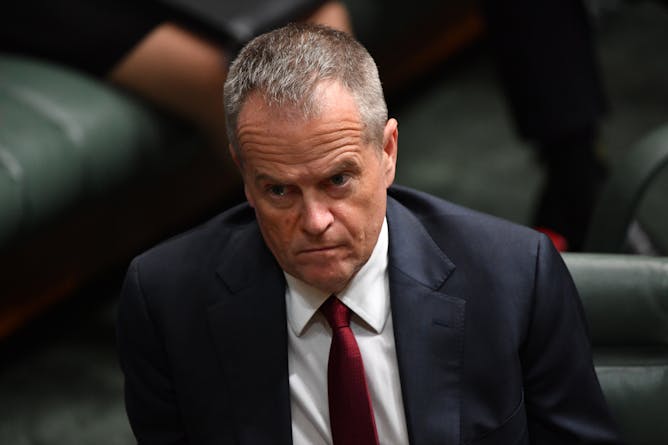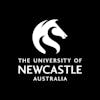|
|
|
Author's note
|
|
In a media world experiencing disruptive change The Conversation stands out as an exemplar of informed, knowledge-based communication and healthy democratic discourse. Linking academic writers with professional editors, to bring university knowledge and ideas to a broad audience was a brilliant concept. It is no surprise that it has managed to engage the energy and attention of thousands of academics and millions of readers across the globe. The Conversation started in Australia but the power of the idea and the quality of the delivery, quickly led to an international network with editions in the UK, the USA, Africa, France, Canada and Indonesia. The Conversation is now established as a powerful vehicle for free access to free expression of evidence, ideas and views, in a world which desperately needs this quality of publishing.
Every day in The Conversation you can read expert articles ranging from news and aspects of current affairs, to science, the humanities and culture. Key features of The Conversation are that it is free to contribute, free to read and free to republish. That makes it dependent financially upon individuals and organisations that care about the future of our media and a free and open public discourse. The Conversation is precious to Australia and our global community. I admire what has been achieved so far and encourage you to read and support this wonderful venture.
|
Ian Jacobs
Vice Chancellor
|

|
|
Top story
|

Shorten would be better off if the conference could be scrapped.
Mick Tsikas/AAP
Michelle Grattan, University of Canberra
The ALP just has to suck it up and throw itself into battle, because the stakes are very high.
|
Politics + Society
|
-
Rebecca Strating, La Trobe University; Clive Schofield, University of Wollongong
Despite a breakthrough on boundaries in the Timor Sea, the crucial question of how the shared oil and gas are to be developed remains unresolved.
-
Michelle Grattan, University of Canberra
The byelections, which span four states, are especially crucial for opposition leader Bill Shorten, because four are in ALP seats and two of those are on wafer thin margins.
-
Michelle Grattan, University of Canberra
The audit has been underway since early this year, sparked by the controversy around his affair with his former staffer and now partner Vikki Campion.
|
|
Environment + Energy
|
-
Samantha J Tol, James Cook University; Alana Grech, James Cook University; Paul York, James Cook University; Rob Coles, James Cook University
New research highlights the role of sea turtles and dugong in the dispersal of seeds and maintenance of seagrass meadows, an important marine habitat and the primary food source for both animals.
|
|
Arts + Culture
|
-
Mitchell Rolls, University of Tasmania
A mossy sanctuary in Victoria's Dandenong Ranges houses 92 sculptures, mostly of Arrernte and Pitjantjatjara men, women and children. They are steeped in primitivism, yet the park is a popular tourist attraction.
-
Timothy Kazuo Steains, University of Sydney
Journalist Stan Grant has argued that we need to stop talking about Meghan Markle's 'mixed race' identity. But our society still categorises people according to race - and we need to discuss this.
|
|
Education
|
-
Geoff Sharrock, University of Melbourne
Labor has promised to review the tertiary education sector if elected next year. There are some major issues, and some examples from abroad they should consider.
|
|
Science + Technology
|
-
Chris Firth, Macquarie University
The current eruption of Kilauea on Hawai'is big island can tell us a lot about what is going on beneath the volcano and may provide lessons for future eruptions.
-
Vincent Mitchell, University of Sydney
By choosing to deal with companies with better data protection policies, Australian consumers can create pressure for change in how personal data is handled across the board.
|
|
Cities
|
-
Sebastien Darchen, The University of Queensland; Gwendal Simon, Université Paris-Est Marne-la-Vallée (UPEM); Sonia Roitman, The University of Queensland
Planning matters. The 2005 riots in France started in badly designed housing projects, while innovative planning helped Medellín, Colombia, shed its reputation as the most violent city in the world.
|
|
Business + Economy
|
-
James Morley, University of Sydney; Beth Webster, Swinburne University of Technology
Two experts argue for and against government intervention when it comes to fixing low wage growth.
-
Antony Ting, University of Sydney
It is well known that modern multinationals such as Google can derive substantial revenue and profits from Australia without significant physical presence here.
|
|
Health + Medicine
|
-
Senaka Ranadheera, University of Melbourne; Duane Mellor, Coventry University; Nenad Naumovski, University of Canberra; Said Ajlouni, University of Melbourne
Consuming yoghurt is associated with many health benefits. But with all the varieties of yoghurt, and added ingredients like fruits and probiotics, it can be hard to know which is best for your health.
-
Mark Guthridge, Monash University
Spoiler: there's a lot more that we don't know about what causes chronic fatigue.
|
|
| |
Featured jobs
|

|
University of Melbourne — Parkville, Victoria
|

|
RMIT University — Melbourne, Victoria
|

|
Swinburne University of Technology — Hawthorn, Victoria
|

|
Western Sydney University — Parramatta, New South Wales
|
|
|
|
| |
| |
| |

|
| |
| |
| |
Featured events
|

|
55 Elizabeth Street , Sydney, New South Wales, 2000, Australia — University of Newcastle
|

|
Art Gallery of NSW, Sydney, New South Wales, 2006, Australia — University of Sydney
|

|
Charles Perkins Centre, The University of Sydney, Sydney, New South Wales, 2006, Australia — University of Sydney
|

|
19 Ancora Imparo Way, Clayton Campus, Victoria, 3800, Australia — Monash University
|
|
|
|
| |
| |
| |
| |
| |
|
|
|
|
|
|
|